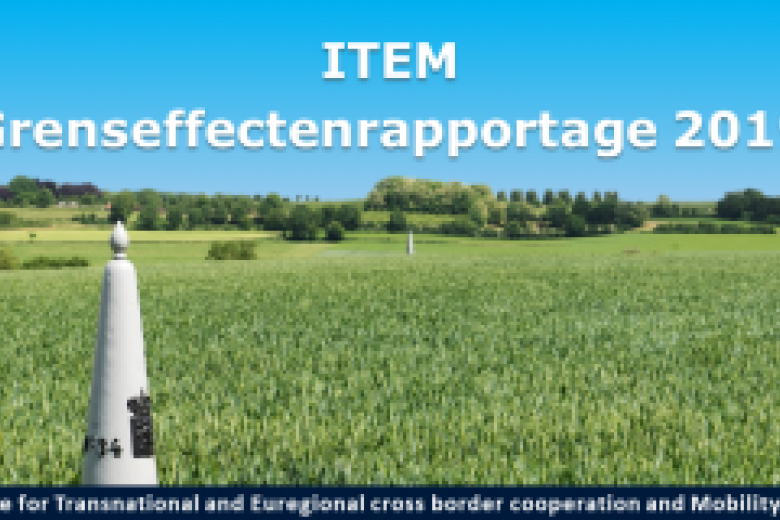European cross-border approaches to the corona crisis are hard to find
Many European borders were closed this spring simply because governments were unable to make agreements about the various national corona measures, and not primarily due to public health considerations. This is the conclusion of the annual Cross-Border Impact Assessment by the Institute for Transnational and Euregional cross-border cooperation and Mobility/ITEM at Maastricht University. ITEM’s study on the impact of COVID measures in European border areas was made in collaboration with partner institutes in Strasbourg, Frankfurt an der Oder and Northern Ireland. Cross-border health strategies were found to be virtually non-existent.
This is the first time that the Cross-Border Impact Assessment has looked not only at the border regions between Belgium, Germany and the Netherlands, but also at several other European border regions, such as France-Germany-Switzerland, Germany-Poland and the border between the Republic of Ireland and Northern Ireland.
Coordination
Existing cross-border governance structures are not sufficient to respond adequately to a crisis such as the coronavirus epidemic, the Maastricht study shows. For example, the stricter entry and exit restrictions imposed by the Belgian government during the first wave were principally the result of a lack of coordination of national measures, in particular with the Netherlands. Strangely enough, the Benelux Union was hardly used by either government as an organisation for coordination. Unlike in the field of disaster management (for major accidents near the border, such as the Enschede fireworks disaster in 2000), in the case of the Netherlands, Germany and Belgium, there are no protocols or agreements for mutual assistance in border regions or between neighbouring countries relating to the management of a pandemic. Although a few Dutch patients were admitted to German hospitals, this took place more via ad hoc cooperation than on the basis of existing agreements between the governments.
Socio-economic factors
In the German-Polish border region, the socio-economic situation in particular has considerably worsened. Here the border was closed for three months, also for cross-border workers. Due to the border closures, many companies were unable to continue their operations in the border area, and in the short term they had to lay off employees. Moreover, many businesses near the border were unable to supply customers in the other country. Another relevant economic factor is seasonal labour, such as in agriculture, the hotel and catering industry, tourism and healthcare. In these sectors, for a long period many Polish workers were unable to work on the German side of the border. In Belgium, the Netherlands and Germany, it was evident that coordination was inadequate, in particular with regard to economic support measures for cross-border workers.
Discrimination
In the Upper Rhine region, the border area between Germany, France and Switzerland, almost 100,000 cross-border commuters were still allowed to cross the border exclusively for work purposes and were thus able to maintain their social security. Later it was often left to the discretion of the police whether members of the public had a valid reason to cross the border. In many cases, this led to a feeling of discrimination. The worst affected by the border closure were families who were torn apart for up to two months. As a result, co-parenting agreements could no longer be respected, for example, and relatives in need of care in a neighbouring country were unable to receive visitors.
Health Union
‘We cannot wait for the end of the pandemic to repair and prepare for the future,’ president of the European Commission Ursula von der Leyen recently asserted. ‘We will build the foundations of a stronger European Health Union in which 27 countries work together to detect, prepare and respond collectively.’ According to the Cross-Border Impact Assessment 2020, the European Commission is still a long way from achieving this explicit ambition. ‘Especially in the border regions, the national crisis approach sometimes seems absurd,’ says ITEM researcher Martin Unfried. ‘Travelling from Rotterdam to Maastricht without going into quarantine, but not from Aachen, while there are far fewer infections in Aachen. A common EU approach to the definition of risk areas, travel advice, equipment purchasing and, in the future, even agreements about sharing hospital capacities – these are important steps. Otherwise the existing cross-border networks will still only be able to take limited action in the future. The proposed mechanism, with policy coordinated at EU level, is therefore also a step in the right direction for the border regions.’ The Cross-Border Impact Assessment 2020 can be found on the ITEM Cross-Border Portal.
TEIN network
The COVID-19 border effects project is a collaboration between the ITEM expertise centre at Maastricht University and various partners in the Transfrontier Euro-Institut Network (TEIN), a unique network of universities, research institutes and training centres that focus on cross-border cooperation in Europe. Amongst others, the 2020 Cross-Border Impact Assessment contains results of this fruitful collaboration between ITEM and the following TEIN members: the Euro-Institut (Upper Rhine region for cross-border cooperation between Germany, France and Switzerland), the Centre for Cross-Border Studies/CCBS (the border region between the Republic of Ireland and Northern Ireland/the United Kingdom) and the Viadrina Center B/ORDERS IN MOTION of the European University Viadrina in Frankfurt an der Oder (the German-Polish border region and the partner cities of Frankfurt [Oder] and Słubice).
Also read
-

-
Maastricht scholars successfully fight forced marriage and marital captivity
For the research group led by Susan Rutten, professor of Islamic Family Law in a European Context at Maastricht University (UM), in recent weeks, everything has fallen into place. Partly in response to the recommendations of their MARICAP study, the Dutch minister of legal protection Sander Dekker...
-
New civil servants law increases uncertainty for cross-border workers
From 1 January 2020, a new Dutch law regarding the legal status of civil servants can prevent certain employees of Dutch universities from working at home. In a change from the current situation, from January on it matters to cross-border workers how much time they work in the office or from home.